15 surprising ways North Korea could become rich
Daniel Coughlin
18 June 2018
Potential moneyspinners for poverty-stricken Pyongyang
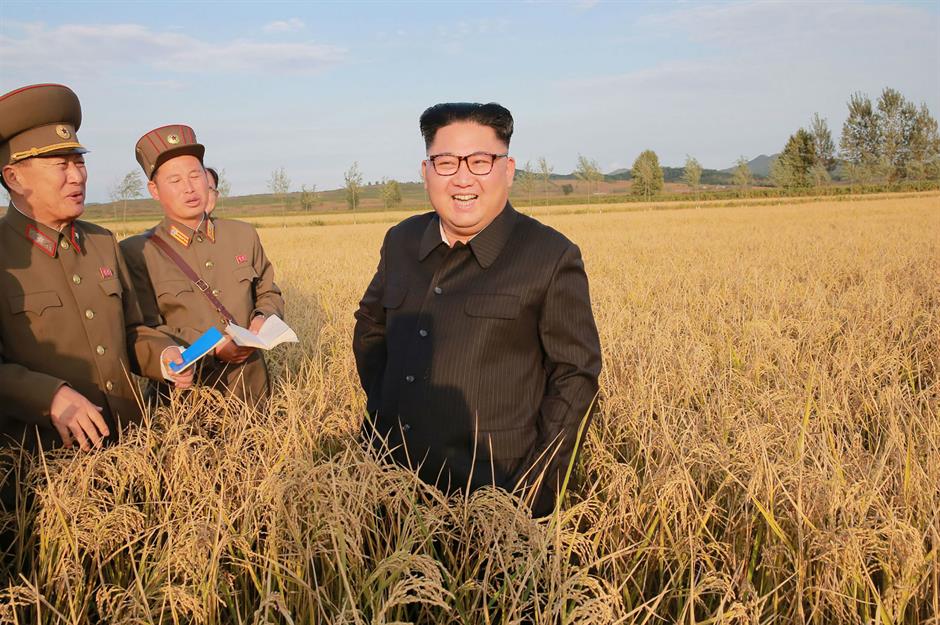
STR/AFP/Getty Images
Hard-up North Korea has so much to gain from denuclearising and becoming part of the civilised world. The hermit kingdom was actually wealthier than the now-affluent South before the Korean War, and is blessed with everything from abundant mineral resources and oil reserves to fertile agricultural land and stunning tourist-friendly beaches, as noted by President Trump. With this in mind, here are 15 industries that could make North Korea very rich indeed.
Tourism

Courtesy/The White House
During their historic summit in Singapore this month, President Trump showed Kim Jong-un a video extolling the virtues of tourism. “They have great beaches,” President Trump told journalists. “You see that whenever they're exploding their cannons into the ocean. I said, 'Boy, look at that view. Wouldn't that make a great condo?'"
Tourism
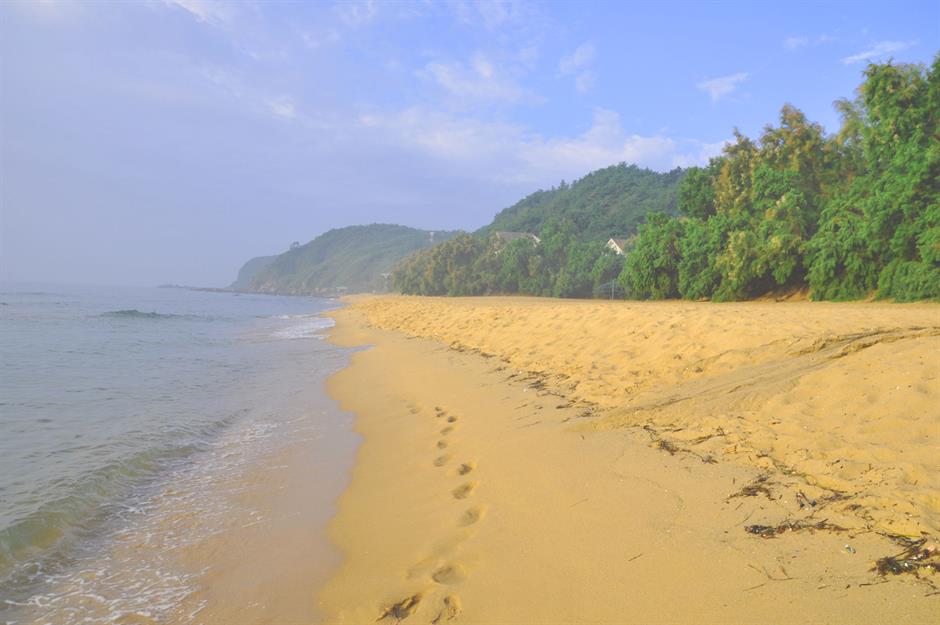
Jan/Flickr CC
North Korea does indeed boast world-class virgin beaches that are ripe for tourism development, and could well rival the South, which has a thriving industry – the tourism sector contributed a bumper $55.3 billion (£41.4bn) to the South Korean economy in 2017.
Sponsored Content
Mining
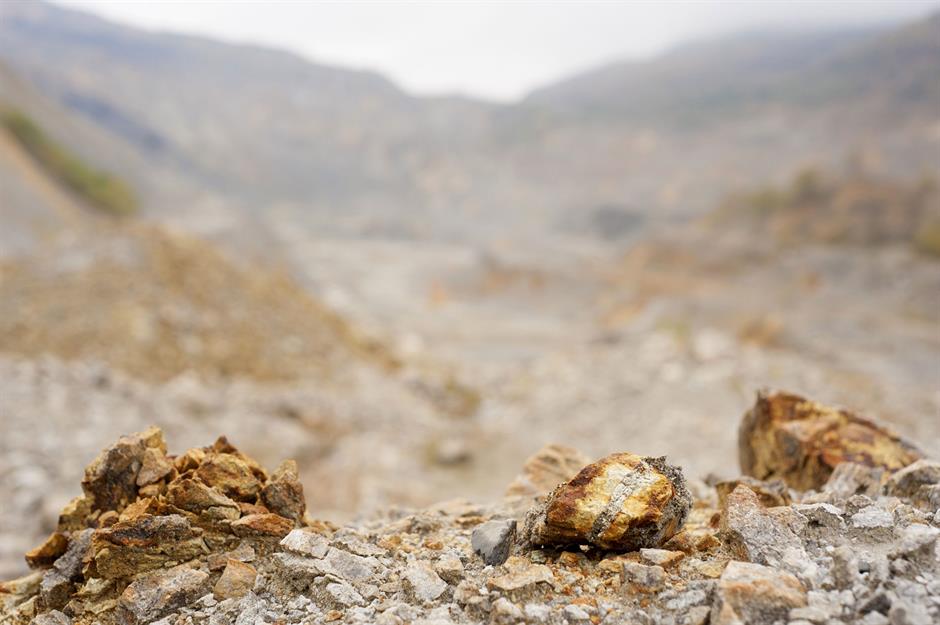
Ioanac/Shutterstock
North Korea is sitting on a goldmine – literally. To the envy of its neighbours, the secretive state has vast mineral reserves that are more or less untapped. In fact, North Korea is remarkably rich in 200 essential metals.
Mining
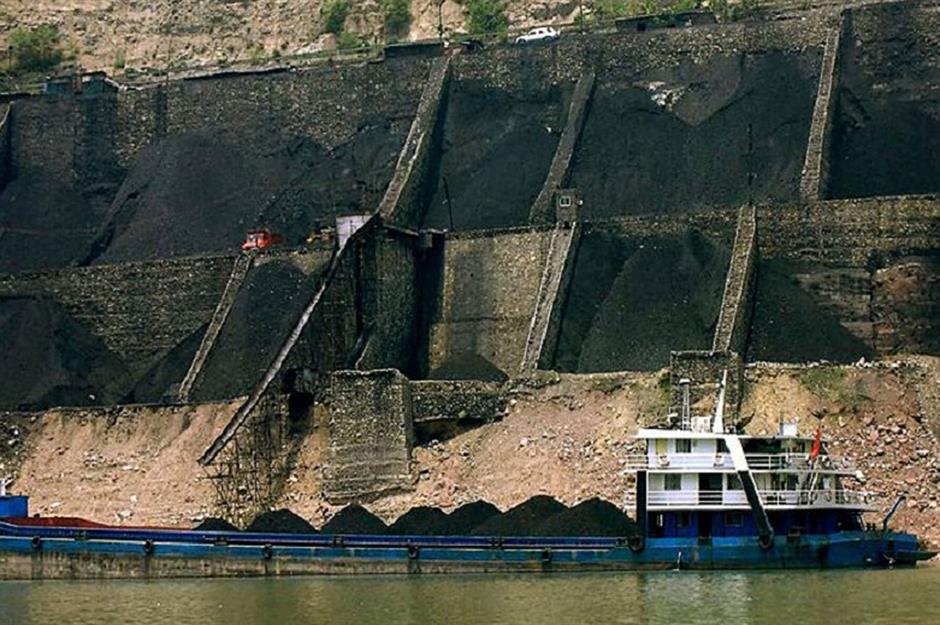
Rob Loftis/Wikimedia Commons
They range from the usual suspects such as gold, iron, zinc, copper and graphite to highly sought-after rare metals that are used in hi-tech gadgets like smartphones and tablets. All things considered, experts estimate North Korea has up to $10 trillion (£7.47trn) in potential mineral wealth.
Oil and gas
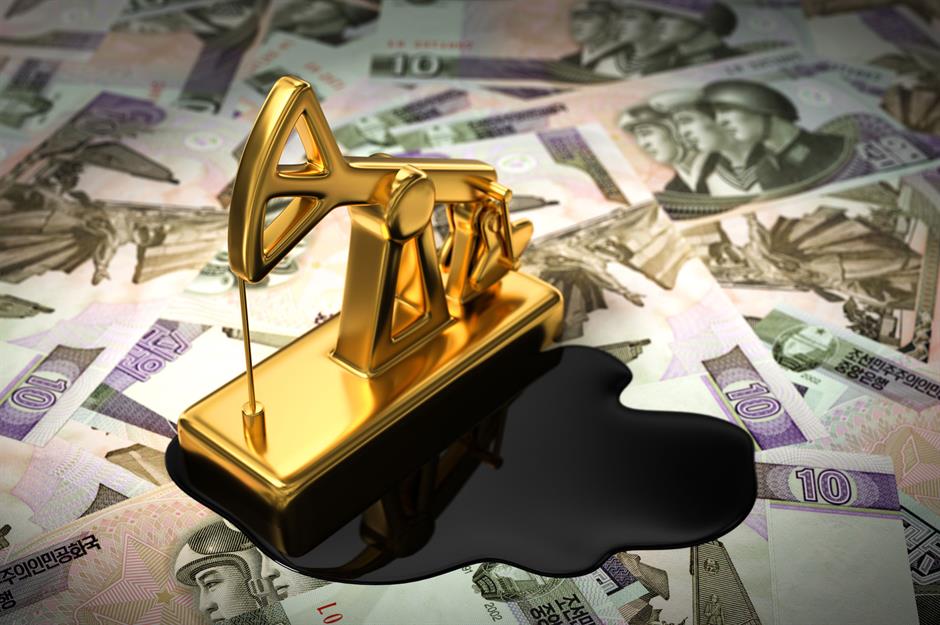
3D Sculpture/Wikimedia Commons
North Korea has “excellent” oil and gas potential according to exploration expert Michael Rego, who has outlined seven areas in the country that are likely to have bountiful reserves, including swathes of Korea Bay and the East Sea.
Sponsored Content
Oil and gas
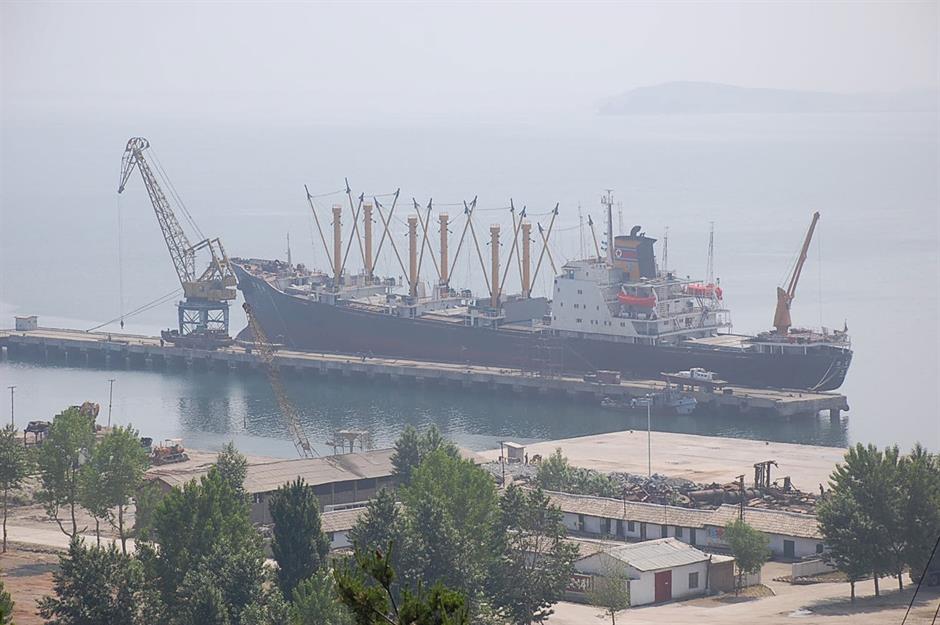
Stephan/Wikimedia Commons
Given the political situation and ongoing international sanctions, North Korea has yet to exploit the enormous reserves of oil and natural gas to anywhere near their full potential. Doing so could add billions of dollars to the country's economy.
Hydroelectric power
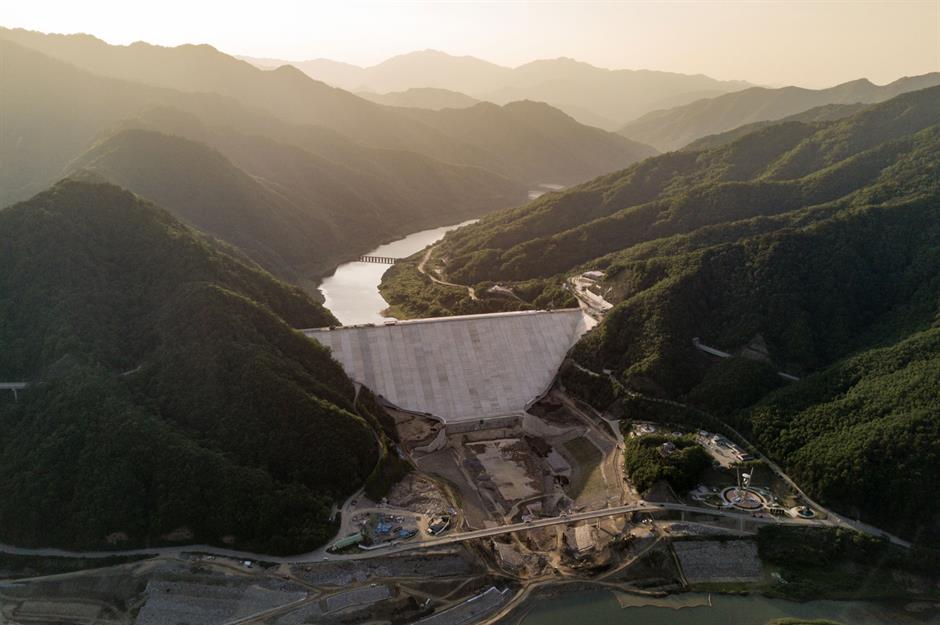
Ed Jones/Getty
A mountainous nation with an impressive 2,235 kilometres (1,398 miles) of inland waterways, North Korea has great hydroelectric power potential. Currently, North Korea operates a small number of dams, all of which straddle the border with China or the militarised zone.
Hydroelectric power

Preechar Bowonkitwanchai/Shutterstock
The easing of international sanctions would allow foreign investment to flow into North Korea and provide the funding for further hydroelectric power stations, another incentive for Kim Jung-on to denuclearise and overhaul the human rights situation in the country.
Sponsored Content
Solar power
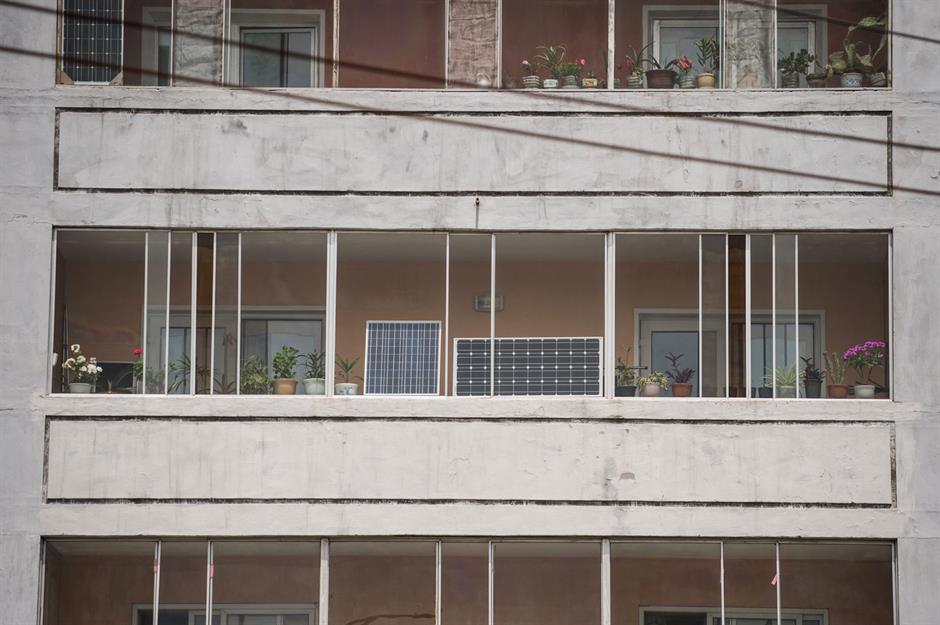
Ed Jones/Getty
Reports from inside the country suggest an increasing number of North Koreans are turning to solar power to meet their energy needs in the power-deprived nation, using solar panels bought from China.
Solar power
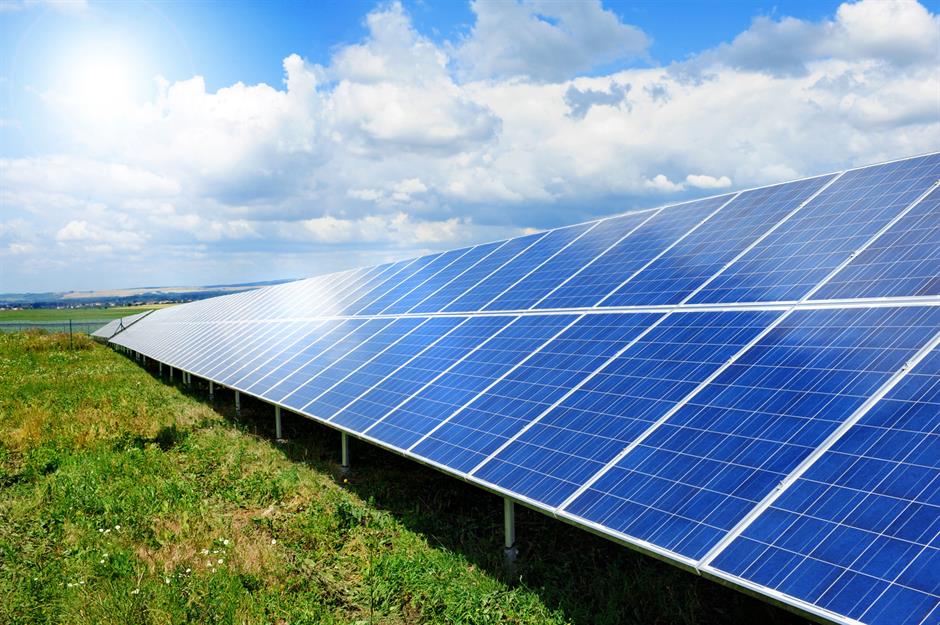
Filip Fuxa/Shutterstock
There's a very good reason North Koreans are embracing solar power in their droves. Pyongyang averages 2,492 hours of sunshine a year, about the same as Barcelona, Houston and Sydney. With the right investment and expertise, solar power could be a sizeable source of income for the country.
Wind power
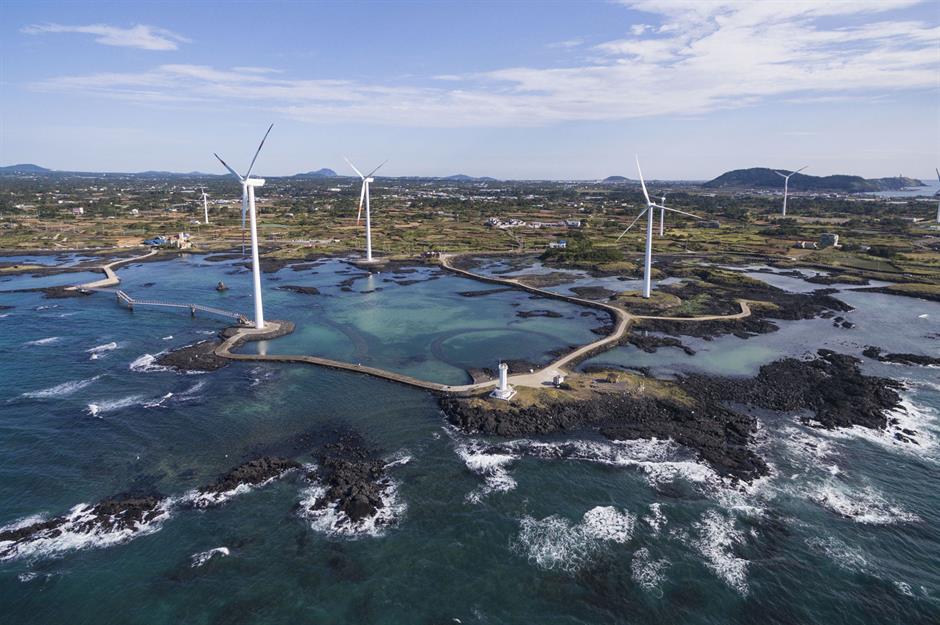
Syeols/Shutterstock
Staying with renewable energy, the wind power industry is hugely underdeveloped in North Korea, which as well as being a sunny nation is a windy one too. Several small-scale UN-sponsored turbines have been installed in the country but the potential for the sector is immense.
Sponsored Content
Wind power
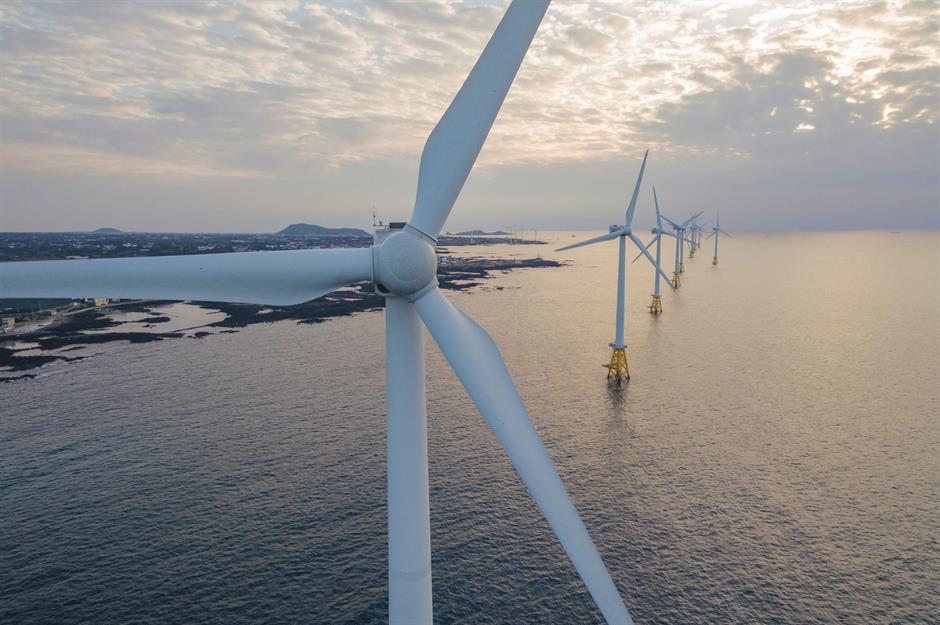
Syeols/Shutterstock
South Korea is investing $8.2 billion (£6.2bn) in offshore wind farms and plans to generate 2.5 GW of electricity by 2019. If North Korea were to follow suit, the country could magnify capacity and reinvent itself as a green energy pioneer.
Construction
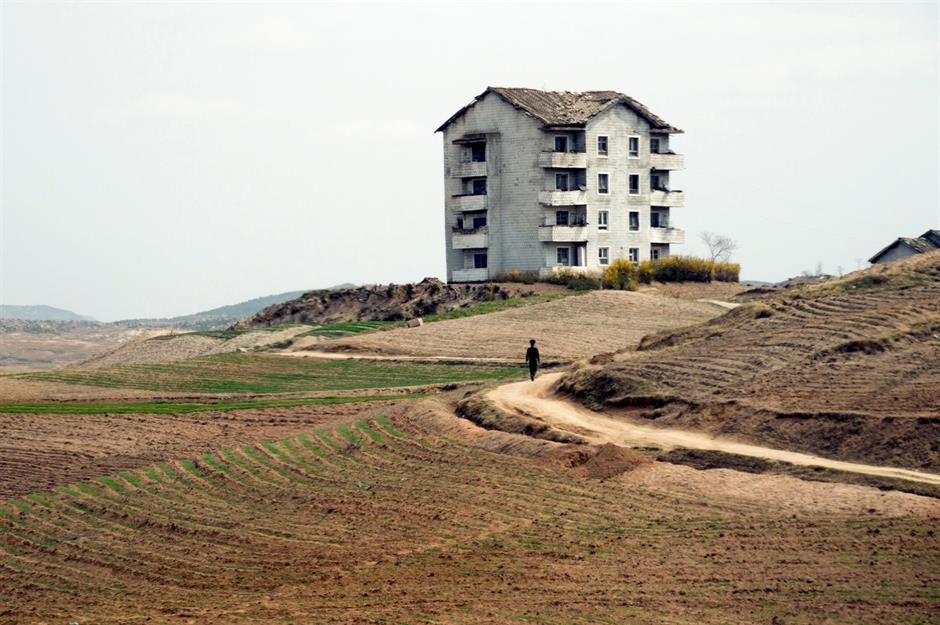
KarlFurst/Shutterstock
Pyongyang has modern buildings and pristine roads, but it's a very different story away from the manicured show capital. Housing and public buildings are basic and dilapidated, while only 724 kilometres (450 miles) out of 25,554 kilometres (15,879 miles) of North Korea's roads are properly asphalted.
Construction
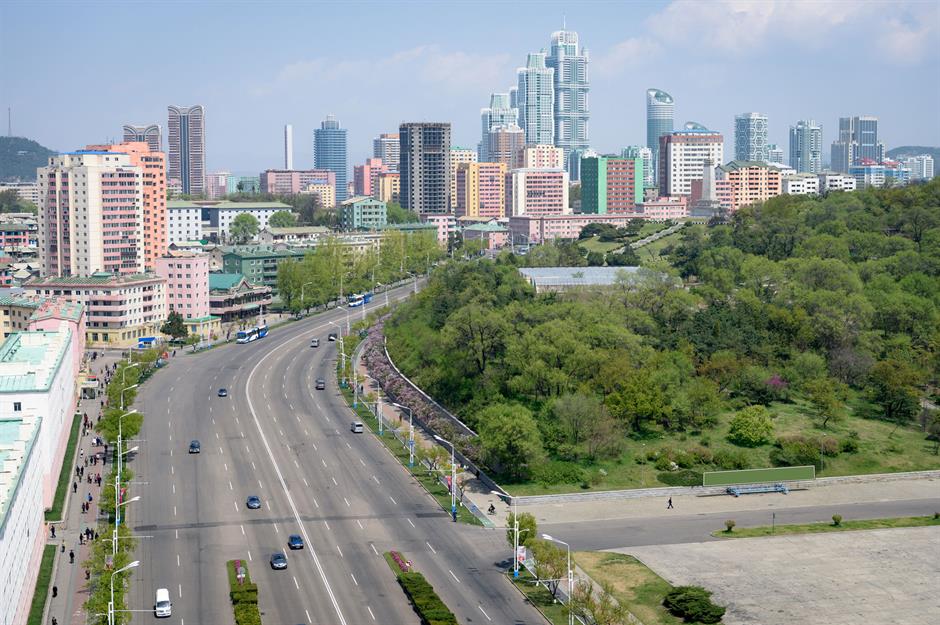
Mbrand85/Shutterstock
If Kim Jong-un really does give up the nukes and transforms North Korea's standing on the world stage, overseas investment cash would likely bankroll an infrastructure makeover and major construction boom in the underdeveloped nation, stimulating the economy no end.
Sponsored Content
Seafood harvesting
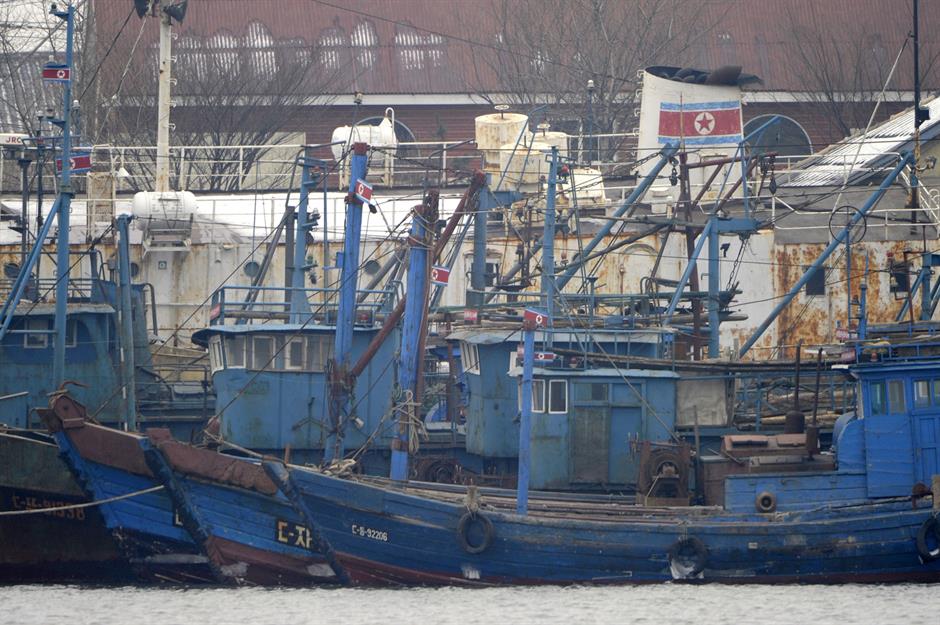
Wang Zhao/AFP/Getty
Seafood harvesting is already one of North Korea's key industries. The country has fishing rights to parts of Korea Bay, but sold its rights to the East Sea to China last year. Still, the prospects for the seafood industry in North Korea are very promising.
Seafood harvesting
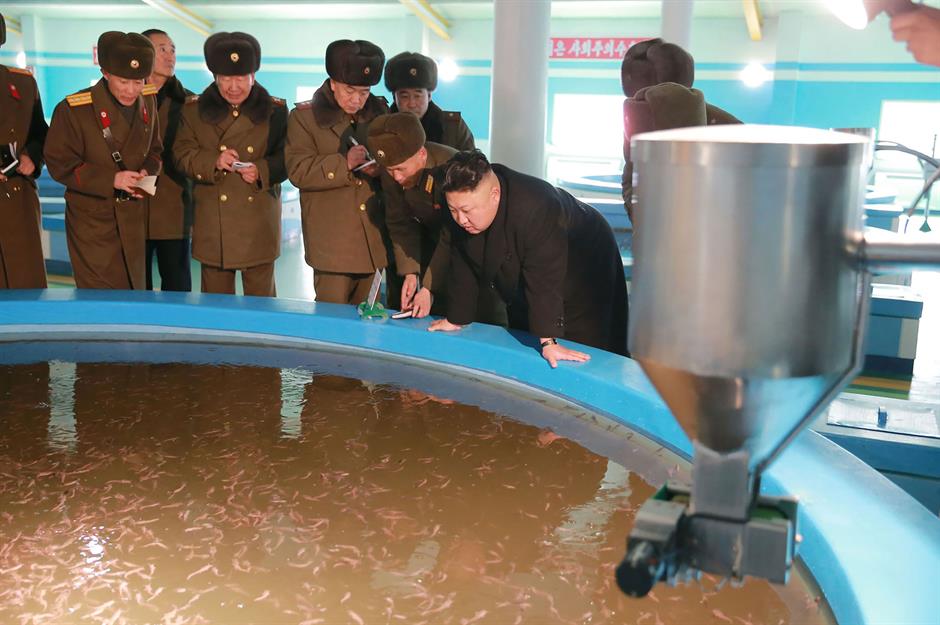
STR/AFP/Getty
If Kim Jong-un plays his cards right, the shellfish industry in the country could grow to be on a par or even eclipse its counterpart in South Korea, which is one of the world's leading harvesters and exporters of seafood.
Garment manufacturing
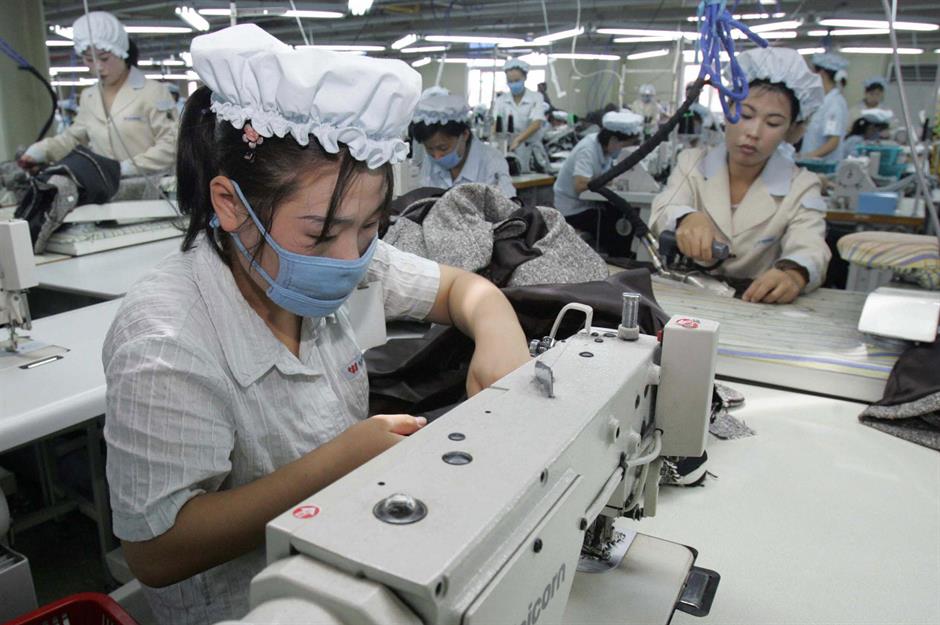
Dong-a Ilbo/AFP/Getty
Apparel manufacturers in Asia and elsewhere are eyeing up North Korea as the next low-cost sourcing destination following the encouraging summit in Singapore. Being a low-wage nation with a fairly skilled workforce, North Korea has all the necessary ingredients to be a major clothing producer.
Sponsored Content
Garment manufacturing
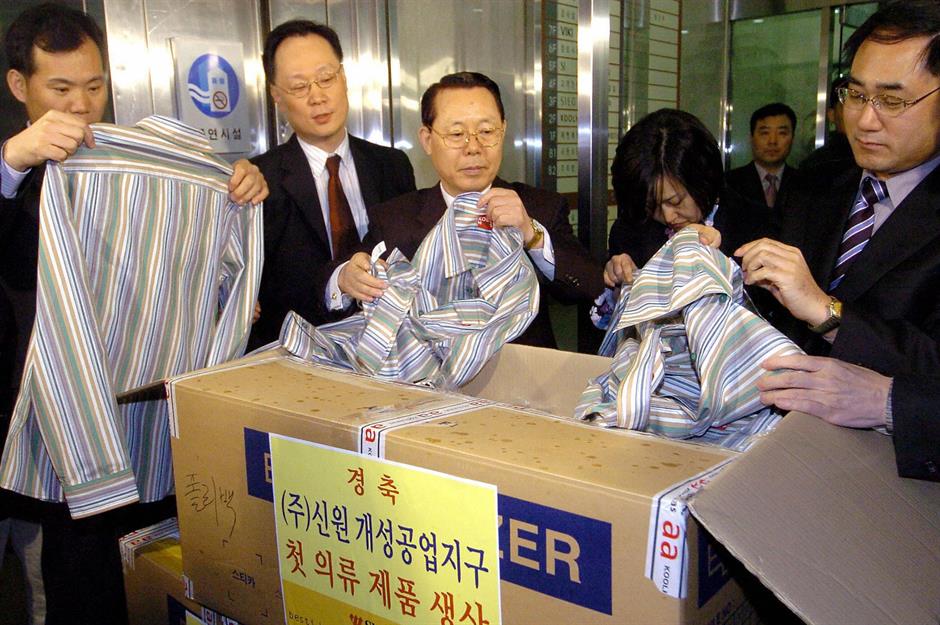
Kim Jae-Hwan/AFP/Getty
In any case, North Korea has managed to cobble together a burgeoning garment manufacturing industry, which is thought to be worth $725 million (£545m). Chances are foreign manufacturers will cram the country with apparel factories if and when internationals sanctions are lifted.
Hi-tech manufacturing

Mahoney/Shutterstock
South Korea's hi-tech manufacturing industry is renowned the world over and its electronics giants, which include colossal chaebol conglomerates like Samsung, LG and Hyundai, are global leaders that turn over billions of dollars a year.
Hi-tech manufacturing
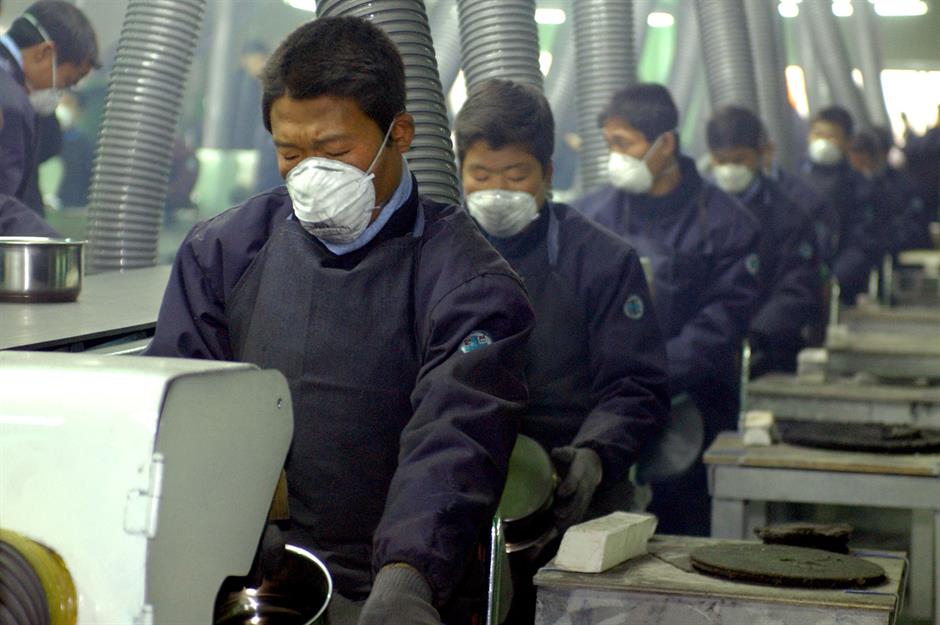
Jung Yeon-je/AFP/Getty
North Korea clearly has the expertise, the regime has been able to develop technically advanced nuclear weapons after all. If it does get rid of its weapons of mass destruction, the nation could become a global hub for hi-tech manufacturing.
Sponsored Content
Advanced agriculture
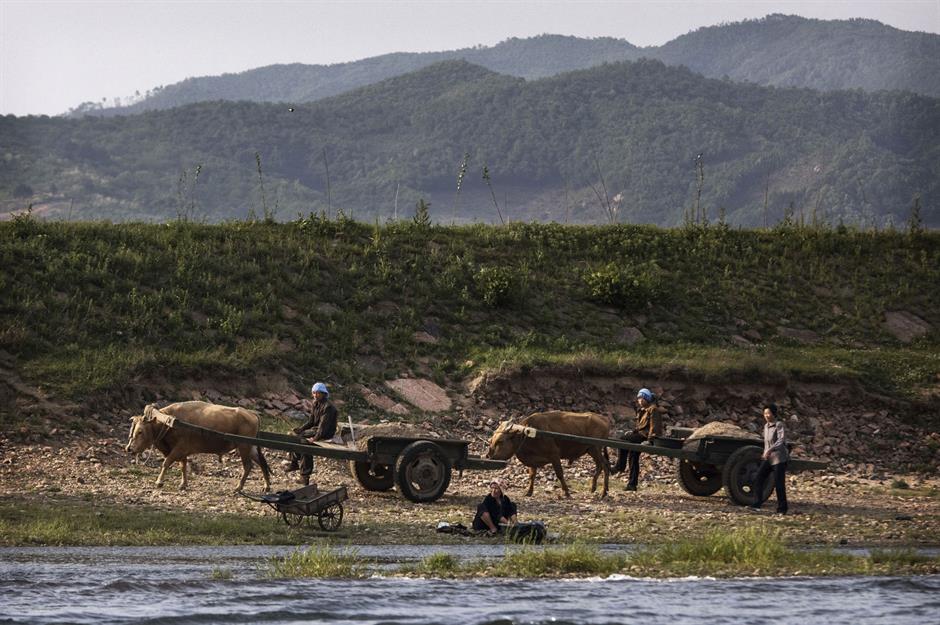
Kevin Frayer/Getty
Despite relying on basic machinery and outdated growing methods, North Korea is a major fruit and vegetable producer with much of the agriculture activity in the country concentrated in the fertile lands in the west.
Advanced agriculture
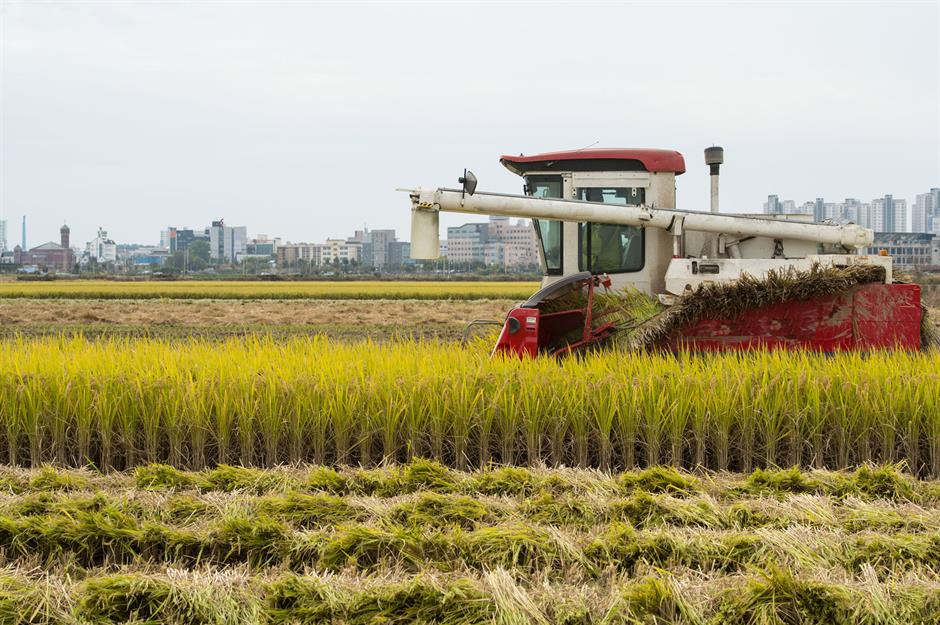
Dongseun Tang/Shutterstock
A relaxing of global sanctions and general opening up of the country could help modernise the farming industry and raise productivity to South Korean levels. The North's richer neighbour is the one of the world's leading producers of rice, for instance.
Retail
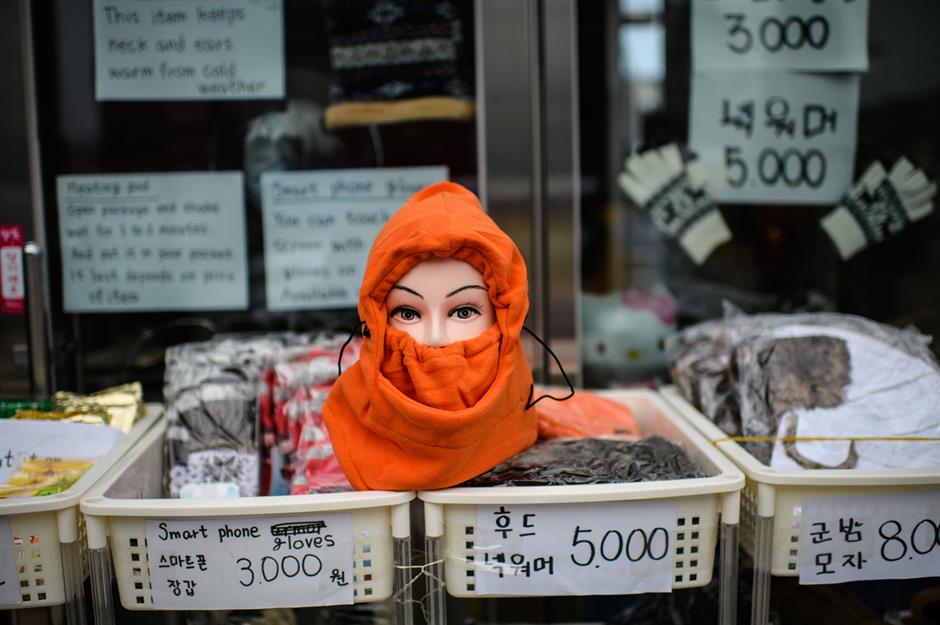
Carl Court/Getty
Market forces and consumerism already pervade North Korea. Every village, town and city in the country boasts at least one clandestine 'jangmadang' market, where traders hawk everything from produce they've grown to cheap electricals smuggled in from China.
Sponsored Content
Retail
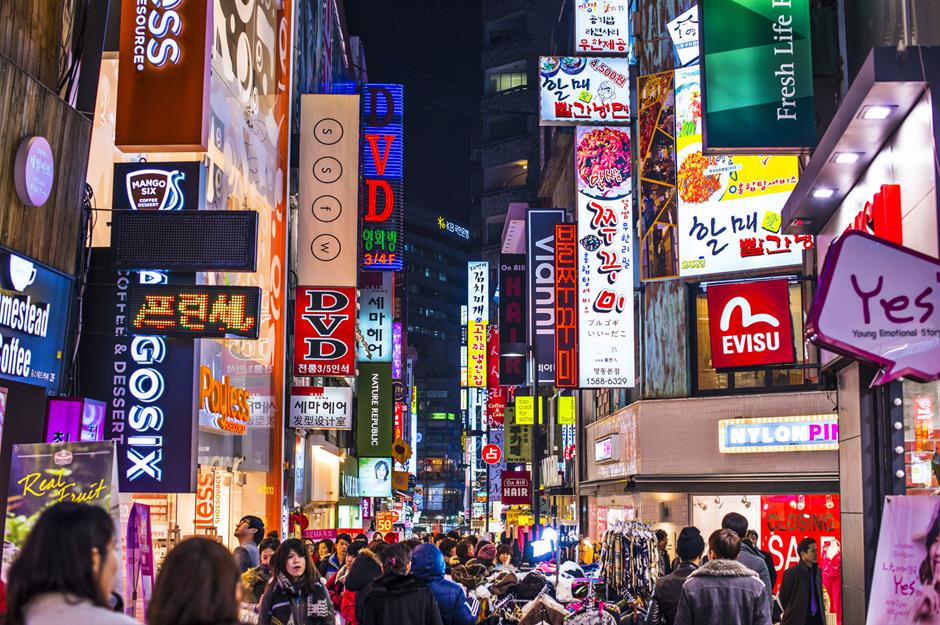
Sean Pavone/Shutterstock
If sanctions are lifted and North Korea embraces capitalism, the retail industry is likely to explode in the country as these markets become part of the formal economy and foreign retailers rush in to open stores.
K-pop

Debby Wong/Shutterstock
A global phenomenon that rakes in $4.7 billion (£3.5bn) a year, K-pop, South Korea's premier musical export, has conquered the world, thanks to artists like BTS, Twice and Psy, creator of Gangnam Style. The latter topped the charts in more than 30 countries in 2012, while the music video has scored 3.2 billion hits on YouTube.
K-pop

Han Myung-Gu/Getty
In April, K-pop idols performed for the first time in North Korea and Kim Jong-un is said to enjoy the music. His softening stance, improved relationship with the South and easing of sanctions could bring about a lucrative K-pop industry in the country that could be exported globally.
Sponsored Content
K-film

Morning Calm Weekly News/Flickr CC
Likewise, North Korea could cash-in big-time by developing an internationally regarded movie industry. South Korea's K-film industry enjoys global acclaim and turns over billions of dollars annually.
K-film

Chung Sung-Jun/Getty
North Korea has, believe it not, a number of animation studios such as SEK Studios that have worked on Hollywood blockbusters including The Simpsons Movie. Yes, really. The lifting of sanctions and liberialising of the economy could establish North Korea as a movie-making paradise.
K-drama

Courtesy Munhwa Broadcasting Corporation
South Korean TV has millions of fans worldwide, from Asia to Europe and North America. The country is famed for its so-called k-drama shows, many of which are exported globally. By way of example, the 2003 historical saga Dae Jang Geum (Jewel in the Palace) was sold to 91 countries.
Sponsored Content
K-drama

Daniel Oines/Flickr CC
If North Korea does end up playing by the rules and abandons its nuclear ambitions, the country could nurture a TV industry much like the wealthy South, and make a fortune exporting shows across the world.
Comments
Be the first to comment
Do you want to comment on this article? You need to be signed in for this feature